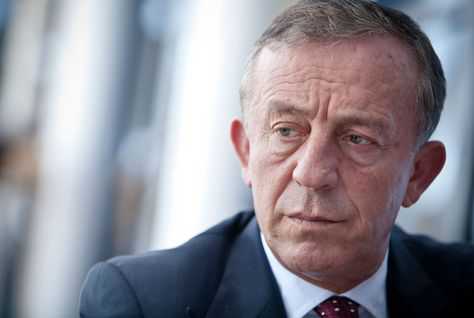
Funding growth: Agaoglu plans to issue $2bn in Islamic bonds starting next month to help with the financing of Istanbul’s International Financial Centre
It was at the age of eighteen while working for his father that Ali Agaoglu embarked on a career in construction. Now at 59, the self-made billionaire and Turkey’s eighth richest man is helping rebuild Istanbul, once the capital of the Ottoman Empire.
Of course it helps that Agaoglu, and his construction and real estate company, Agaoglu Group have the support of Turkish prime minister Recep Tayyip Erdogan.
“We’ve been friends since 1990 even before he became prime minister,” Agaoglu says in an interview with CEO Middle East. “Twenty three years ago I was building close to 200 villas near Istanbul and I sold one of those villas to the brother of the first lady and this is how we met.”
Agaoglu speaks fondly of Erdogan, who he sees as a pillar in the country’s development next to Mustafa Kemal Atatürk, who led a nationalist revolution and founded the secular republic of Turkey, and Turgut Ozal, who led Turkey out of military rule and ushered in an era of privatisation that helped develop the country’s economy.
“He is a visionary, a strong leader,” Agaoglu says of Erdogan. “The GDP of our country was $220bn when he took office and in these ten years our GDP has increased four times to $880bn. In 2023 we are expecting a GDP of $2 trillion. Erdogan is a very strong leader supported by more than 50 percent of society and he is unique.”
Part of Erdogan’s vision has been the building of a financial centre to position Istanbul as an international financial hub by 2023, marking the country’s 100th anniversary as a republic. Turkey’s economy today, in stark contrast to its economic woes of the late 1990s and 2001, is booming. Unemployment is declining, and industries are expanding.
The country’s economy is estimated to have grown 3 percent last year due to the debt crisis in Europe and contracting economies there. In 2011, Turkey recorded GDP growth of about 8.5 percent and 9.2 percent the year before.
Economic growth over the past ten years has also served as a catalyst for the urban renewal and gentrification of Istanbul. That is very much in line with Erdogan’s vision to widen the size of the city to meet increasing demand from a growing population and internal migration in addition to the construction of new buildings to replace older ones prone to collapsing in the event of an earthquake.
For Agaoglu Group, one of Turkey’s largest construction companies, the country’s development and the firm’s evolution go hand in hand and it’s launched a charm offensive to attract businessmen from the Arab world to invest in the country’s property market. The construction industry accounts for about 4 percent of Turkey’s GDP.
Agaoglu plans to issue $2bn in sukuk, or Islamic bonds, starting next month to help with the financing of Istanbul’s International Financial Centre.
The company “has been undertaking construction work of the financial centre and we will be issuing some new financial instruments such as murabaha, sukuk and real estate certificates,” Agaoglu says. “We have been carrying out the preparation work for all of those instruments. With this new set of financial instruments we will be offering more to the Gulf region.”
Turkey issued its first ever Islamic bond of $1.5bn in September which saw strong demand from the oil-rich Gulf. Last year about $144bn of sukuk were issued, according to Islamic Finance Information Service. The country, which is the sixteenth largest economy in the world, attracted about $16bn in foreign direct investment in 2011, according to the United Nations Conference on Trade and Development. That’s more than the inflows to countries such as Korea, Malaysia, Argentina, Peru, Belgium, Denmark and Portugal.
via Constantinople rising – Construction – ArabianBusiness.com.